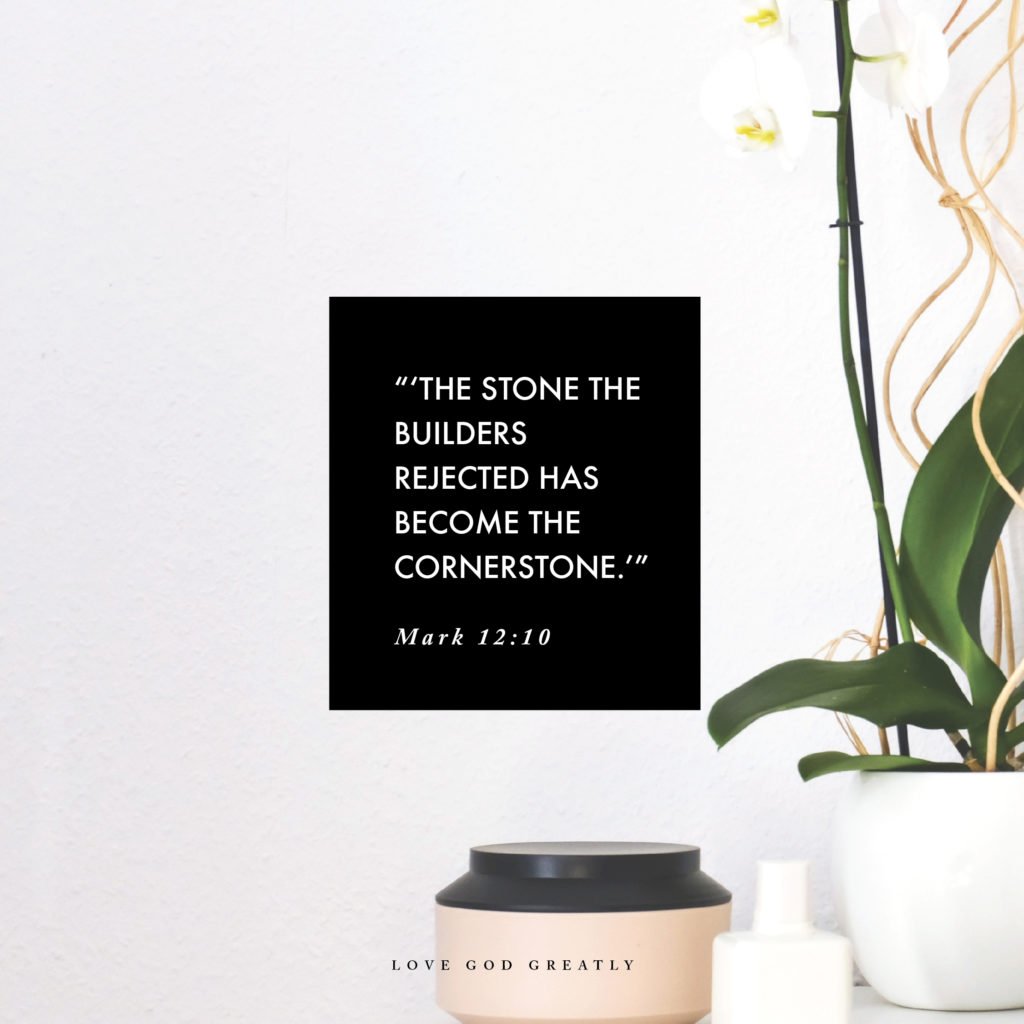
Have you ever faced awkward questions about your faith? Or had people ask you awkward questions, with their only intent being to trick you? It’s never a nice place to be, and yet even these times can provide us with opportunities to point people to Jesus.
In Mark 11 we see the highs of Jesus’ triumphal entry into Jerusalem and His cleansing of the temple. However, the chapter ends with the religious leaders angrily challenging Jesus, asking by what authority He was doing these things. They were already seeking to kill Him (see Mark 3:6 and 11:18). Instead of replying, Jesus said He’d answer if they answered His question: “John’s baptism—was it from heaven or from people?” They couldn’t give an answer, so Jesus wouldn’t answer them!
This is the point at which Mark 12 begins. Jesus spoke to the religious leaders and the gathered crowd using a shocking parable. A vineyard was often used as a picture of Israel in the Old Testament (Psalm 80:8; Isaiah 5:1-7; Jeremiah 2:21; Hosea 10:1). In this parable:
- The owner of the vineyard is God.
- The tenants are Israel’s religious leaders – they are supposed to be working to produce fruit, but they have become self-serving.
- The servants are the prophets who God sent seeking what is rightfully His. The beating and the killing of the servants is a reminder of how the prophets and their messages were mainly rejected.
- The dear son is Jesus.
Jesus spoke right into the situation the religious leaders were in, as they plot His death. He knows what is ahead of Him (see Mark 8:31; 9:31 and 10:33-34). This parable is a plea to the religious leaders to look at the evidence that Jesus is the promised Messiah, and to give God what is rightfully His, their wholehearted devotion.
Sadly, the religious leaders understood the parable but they rejected Jesus. In this they ignored the warning at the end of the parable where the owner destroyed the terrible tenants and handed the vineyard over to new tenants. Jesus is the rejected stone, rejected by those He had come to save, and yet He became the cornerstone!
Peter also quoted these words in Acts 4:11-12 when speaking to the Jewish religious leaders: “This Jesus is the stone that was rejected by you, the builders, that has become the cornerstone. And there is salvation in no one else, for there is no other name under heaven given among people by which we must be saved.”
Mark tells us the religious leaders went off to plan some ways to catch Jesus. The rest of the passage shows their attempts to do just that. First, the Pharisees and Herodians came to ask a divisive question about taxes intending to “to trap him with his own words.” The Pharisees opposed Roman rule, whereas the Herodians supported Roman authority. Jesus answered, “Give to Caesar the things that are Caesar’s, and to God the things that are God’s.” This answer amazed them, and they had no response. Yet, Jesus’ reply sought again that the leaders would give to God what is rightfully His.
Then the wealthy Sadducees came. They were responsible for trading at the temple and didn’t believe in resurrection (Acts 23:8). Their question was about resurrection, in an attempt to show that it wasn’t believable. Jesus pointed them to Scripture where Abraham, Isaac, and Jacob were alive at the time of Moses. This left the question, how can that be without resurrection? Jesus also challenged their knowledge of the Scriptures and their view of God’s power in resurrection life. It isn’t just this life for eternity (their view was too small). It’s a different life all together.
This is a challenge for us, too. It’s easy for us to be led astray when we don’t take the time to know God through the Bible. We are also challenged to think about our view of eternity. Is our view of eternity with God too small?
The religious leaders should have rejoiced at Jesus’ fulfilment of Messianic prophecies. Some did become followers, but many rejected Jesus and plotted His death. However, that didn’t stop God from glorifying Him and establishing the church. “So then you are no longer foreigners and noncitizens, but you are fellow citizens with the saints and members of God’s household, because you have been built on the foundation of the apostles and prophets, with Christ Jesus himself as the cornerstone” (Ephesians 2:19-20).
We, the church, are being built on Christ, He is our cornerstone. However, we also need to be careful of the temptation to become self-serving rather than God-serving. Are we giving to God what is rightfully His? As we continue to hold out Christ as the only way to eternal life with God, some will reject Him and us, as His ambassadors. However, some will join us in God’s wonderful household – oh happy day!
